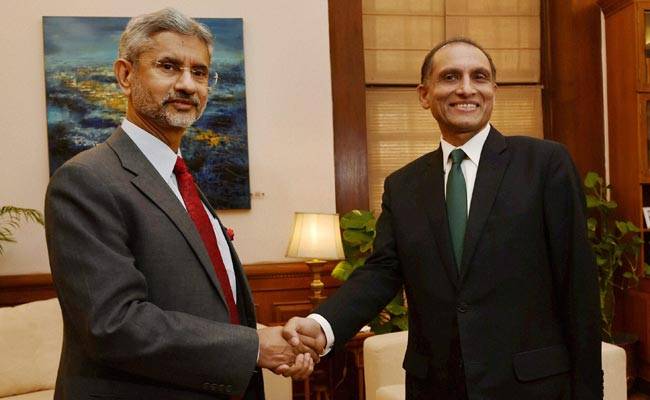The Delhi talks achieved what it perhaps set out to do; appease the agitated public that their respective governments are holding their ground in this seemingly futile diplomatic exercise. The foreign secretaries of India and Pakistan raised their respective preferred topics on Tuesday without really addressing each other’s concerns and political conjunctures that have led up to the dialogue. Pakistan’s Foreign Secretary Aizaz Ahmed Chaudhry dutifully raised the issues of Jammu and Kashmir and the capture of an Indian RAW agent in Balochistan, while the Indian Foreign Secretary Subrahmanyam Jaishankar stuck to the rhetoric of accelerating the Pathankot investigations and arresting the culprits New Delhi had identified.
As it is, sources from the Indian media have instigated that Pakistan snubbed basic protocol today during Foreign Secretary talks by releasing a statement while the dialogue was still in process, highlighting the dialogue in a manner of negativity and hailing the Indian diplomats for showing strength and being assertive. Is this really the extent of what both sides hope to achieve by holding dialogue on issues that remain in deadlock? To give fodder to the media to keep occupied for a couple of weeks?
According to the Pakistan statement, Aizaz Chaudhry expressed the confidence that, building on the goodwill generated by the recent high-level meeting, the two countries should remain committed to carry on this ‘meaningful’ conversation forward, reiterating the Pakistani Prime Minister’s stance for a ‘peaceful’ neighbourhood. The truth of the matter is that unless a concerted effort is displayed by India to take necessary steps to address Pakistan’s core issue like Kashmir, hope for peace is at a distant stretch and any dialogue carried out meanwhile is simply for public show.
Terrorism remains the bone of contention between the two sides. India holds firms to the Mumbai attack 2008 incident and wants JeM Chief Masood Azhar handed over while Pakistan has the Samjhauta Express 2007 bombing of the cross-border train that killed 42 Pakistanis to counter their own set of reservations. The increased reports of RAW’s involvement in Balochistan and Karachi have yet to be addressed by the Indian government. The Pathankot attack adds to Indian woes, even though Pakistan has been more than forthcoming in its investigations. If both sides are unable to set aside past grievances to take tangible efforts towards the future, every high-level dialogue held till then will merely be a decorative and futile exercise aimed at generating public sympathy and support for the respective leaders.






